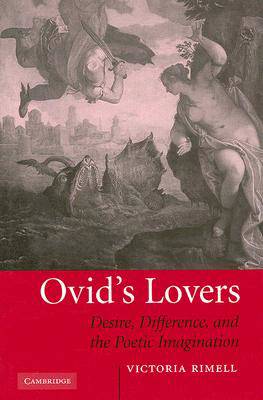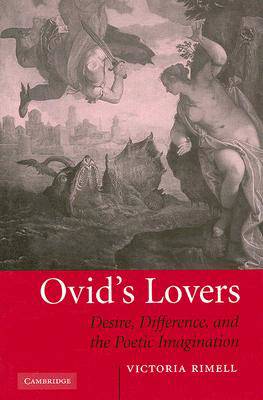
Door een staking bij bpost kan je online bestelling op dit moment iets langer onderweg zijn dan voorzien. Dringend iets nodig? Onze winkels ontvangen jou met open armen!
- Afhalen na 1 uur in een winkel met voorraad
- Gratis thuislevering in België vanaf € 30
- Ruim aanbod met 7 miljoen producten
Door een staking bij bpost kan je online bestelling op dit moment iets langer onderweg zijn dan voorzien. Dringend iets nodig? Onze winkels ontvangen jou met open armen!
- Afhalen na 1 uur in een winkel met voorraad
- Gratis thuislevering in België vanaf € 30
- Ruim aanbod met 7 miljoen producten
Zoeken
€ 100,95
+ 201 punten
Uitvoering
Omschrijving
Central to Ovid's elegiac texts and his Metamorphoses is his preoccupation with how desiring subjects interact and seduce each other. This major study, which shifts the focus in Ovidian criticism from intertextuality to intersubjectivity, explores the relationship between self and other, and in particular that between male and female worlds, which is at the heart of Ovid's vision of poetry and the imagination. A series of close readings, focusing on both the more celebrated and less studied parts of the corpus, moves beyond the more often-asked questions of Ovid, such as whether he is 'for' or 'against' women, in order to explore how gendered subjects converse, compete and co-create. It illustrates how the tale of Medusa, alongside that of Narcissus, reverberates throughout Ovid's oeuvre, becoming a fundamental myth for his poetics. This book offers a compelling, often troubling portrait of Ovid that will appeal to classicists and all those interested in gender and difference.
Specificaties
Betrokkenen
- Auteur(s):
- Uitgeverij:
Inhoud
- Aantal bladzijden:
- 244
- Taal:
- Engels
Eigenschappen
- Productcode (EAN):
- 9780521862196
- Verschijningsdatum:
- 10/07/2006
- Uitvoering:
- Hardcover
- Formaat:
- Genaaid
- Afmetingen:
- 158 mm x 235 mm
- Gewicht:
- 521 g

Alleen bij Standaard Boekhandel
+ 201 punten op je klantenkaart van Standaard Boekhandel
Beoordelingen
We publiceren alleen reviews die voldoen aan de voorwaarden voor reviews. Bekijk onze voorwaarden voor reviews.











